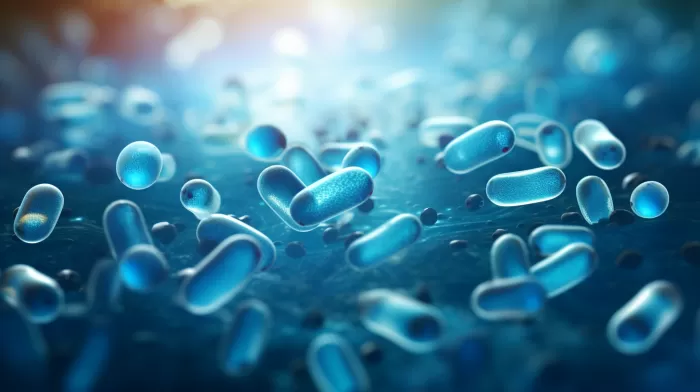You might be surprised to learn that not all germs are bad for you. In fact, some are essential for maintaining your overall health. They can provide numerous benefits, such as supporting a strong immune system and improving digestion. In this article, we’ll delve into the fascinating world of beneficial germs and how they can make a difference in your life.
Your Body is Home to Billions of Germs
Firstly, it’s crucial to understand that your body is home to trillions of germs. Don’t be alarmed by this – they’re supposed to be there! Many of these germs live in your digestive tract, where they work together to help maintain a healthy balance. This collective group of microbes, known as the microbiome, plays a vital role in various aspects of your well-being.
Some of the key roles of the microbiome include:
- Breaking down food and absorbing nutrients
- Producing essential vitamins
- Preventing harmful bacteria from making you sick
- Supporting a strong immune system
Probiotics – The “Good” Germs
The beneficial germs found in your digestive tract are often referred to as probiotics. Probiotics have the ability to provide some incredible health benefits when consumed regularly. You might already be familiar with the term, as probiotics have gained increasing popularity in recent years due to their positive effects on our health.
Some of the best-known benefits of consuming probiotics include:
- Improved digestion and reduced bloating
- Enhanced nutrient absorption
- Boosted immune system function
- Decreased prevalence of allergies
- Improved mental health and cognitive function
- Reduced risk of obesity and weight gain
Natural Sources of Probiotics
Luckily, you don’t have to rely on supplementing with probiotics to reap the benefits of these essential germs. There are numerous natural sources of probiotics found in common foods. Some of the best probiotic foods include:
- Yogurt (choose plain, unsweetened varieties to avoid added sugars)
- Kefir (a fermented milk drink similar to yogurt)
- Sauerkraut (fermented cabbage)
- Kimchi (a Korean dish made from fermented vegetables)
- Kombucha (a fermented tea beverage)
- Miso (a paste made from fermented soybeans)
- Tempeh (a fermented soy product)
The Importance of Microbes in Early Life
The exposure to bacteria and germs in early life can play a crucial role in developing a healthy immune system. This can be seen when comparing babies born via C-section with those born through natural vaginal births. Research has shown that infants born naturally receive a much greater exposure to their mother’s beneficial bacteria, which proves to be beneficial in numerous ways, such as a stronger immune system and improved digestion.
In a study from the University of Copenhagen, it was found that this early exposure to germs helps a newborn’s immune cells perform their protective duties more effectively. Furthermore, the research showed that natural births led to a reduced likelihood of reactive immune cells that could contribute to conditions such as type 1 diabetes, Crohn’s disease, and allergies.
How to Support Your Microbiome
To ensure that the beneficial germs within your microbiome continue to make you healthier, it’s essential to give them the support they need. Providing them with the right food and avoiding unnecessary exposure to antibiotics can help maintain a balanced microbiome.
Some of the best ways to support your microbiome include:
- Consuming a diverse range of plant-based foods (fruits, vegetables, whole grains, legumes, nuts, and seeds)
- Eating probiotic-rich foods regularly
- Including prebiotic foods in your diet (prebiotics are food for the beneficial bacteria)
- Avoiding unnecessary use of antibiotics (only use them as prescribed by your healthcare provider)
- Managing stress levels, as stress can negatively impact your gut health
Conclusion
While the idea of germs might make some people cringe, they are an essential part of your overall well-being. Embrace the presence of these helpful microbes in your body, and make sure to provide them with the support they need to thrive. By understanding the importance of beneficial germs and taking the necessary steps to support your microbiome, you can significantly improve your health and well-being.



